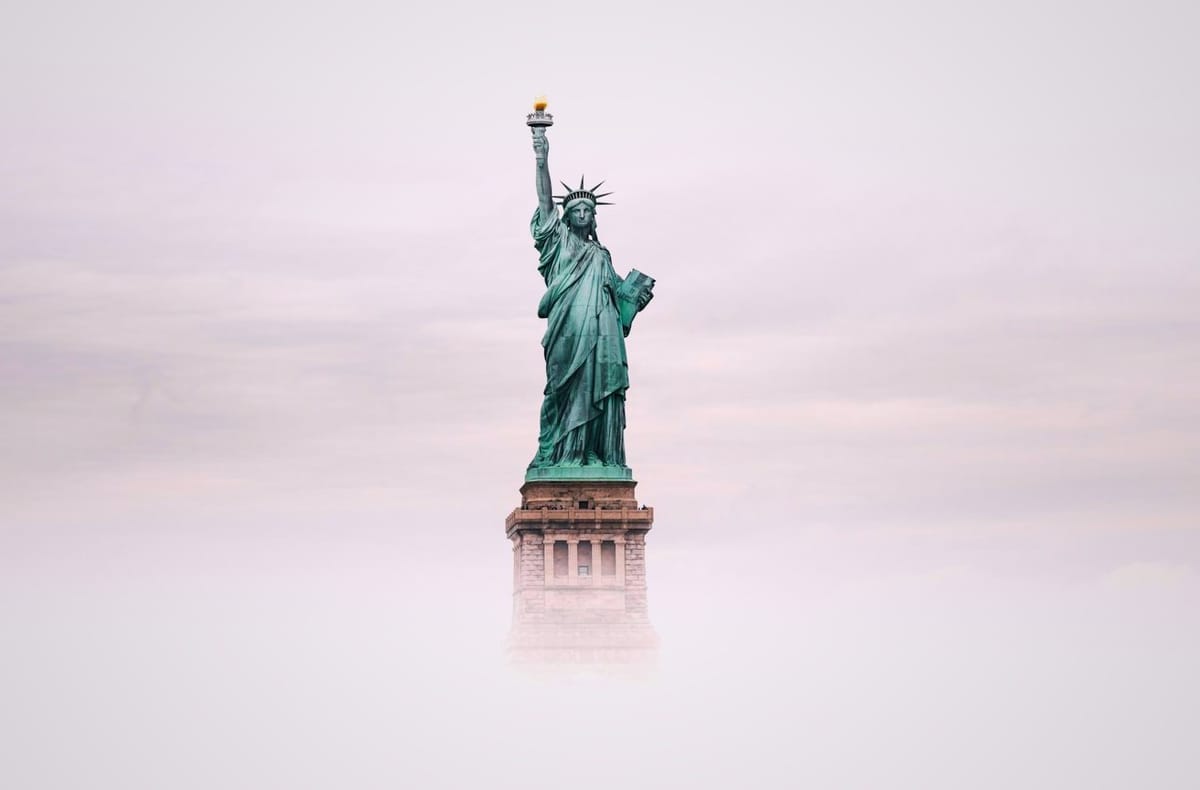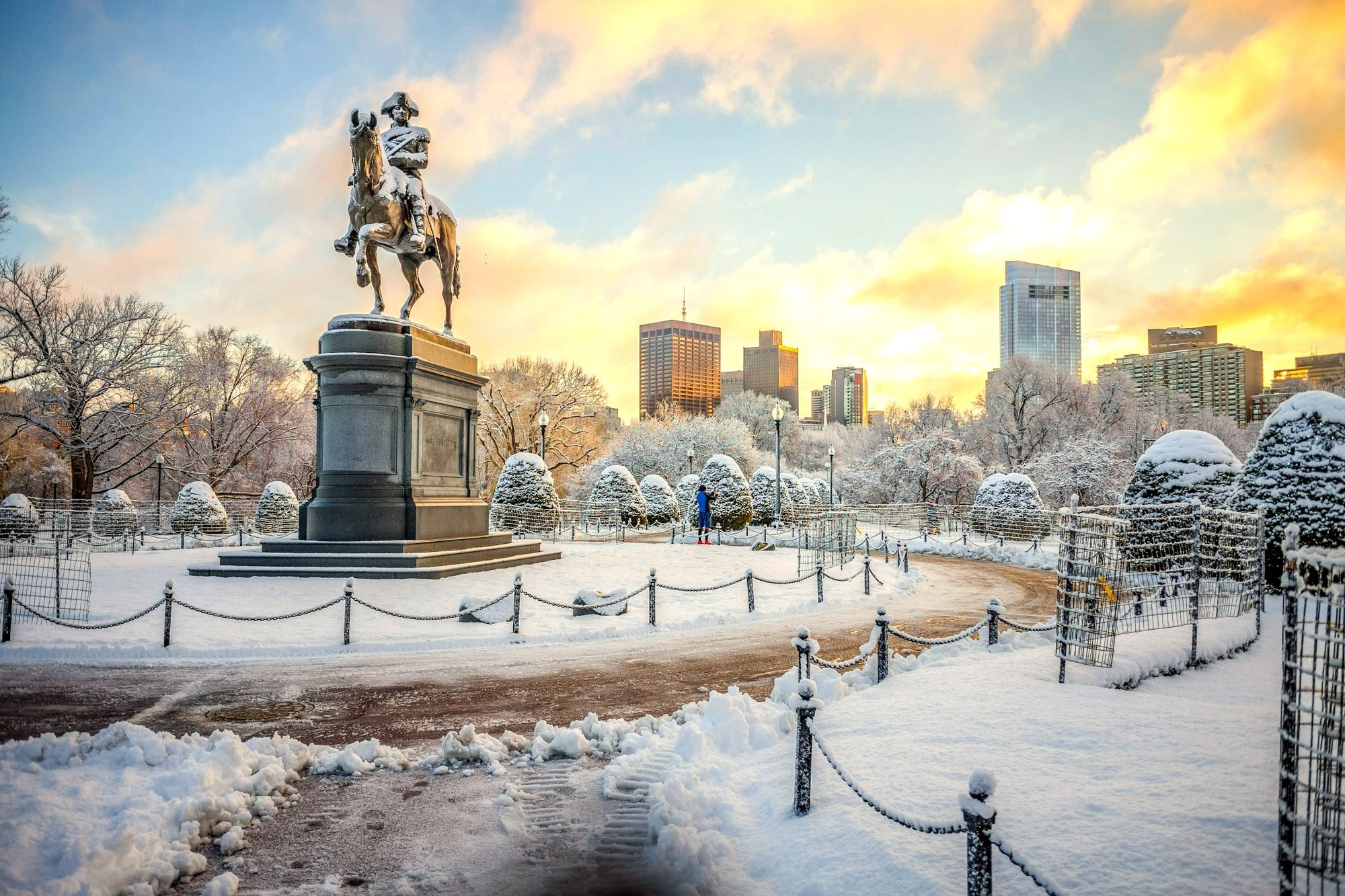Conceived in Liberty: An Introduction

... democracy is a method of government dependent upon liberty, not the other way around.
Of the thousands of testimonies to the “American Dream,” probably none is better than the one made by Senator Marco Rubio (R-FL) during the 2016 race for the presidency. The Republicans had just completed their marathon seventeen-candidate primary “debate” for the 2016 presidential campaign. Prominent among the several remarks were references to a quality of political life labeled singularly American to which candidates and the electorate were urged to adhere lest they lose next year or, worse, lest the country slips into irreparably decline.
Jefferson called it the “Empire of Liberty,” while much later journalist magnate Henry Luce called it “The American Century. Typical of such remarks at the event were those of Senator Marco Rubio (born in Cuba) who emphasized the powerful heritage thrust upon the country well into the twenty-first century:
“My father was a bartender. And the journey from the back of that bar to this stage tonight, to me that is the essence of the American dream. It is what makes our nation different. … I run for president because I believe that we can’t just save the American dream; we can expand it to reach more people and change more lives than ever before. And that’s why I’m asking for your vote. So we can make America greater than it has ever been. And to make this century a new American Century.”
This Blog is about that statement (“rhetoric”) and the thousands of similar ones that have defined the American political landscape from the very beginning. The subject is political liberty and the accompanying cultural energy that releases a whole range of national aspirations and directions, especially the unique (“exceptional”) American role in advancing liberty as a global destination. This is usually described as exporting “democracy” but democracy is a method of government dependent upon liberty, not the other way around.
For this is what we are fighting: Freedom's oldest enemy, the passion of the few to rule the many. - Frank Capra, Director
This is decidedly not a Blog on political philosophy, the Declaration of Independence, the Constitution, Bill of Rights, Federalist Papers or any other substantive region of U.S. political history (otherwise it would be quite a short Blog indeed). This is more rhetorical and emotional than philosophical since if politicians en masse still use its message in 2024 it has to have more than passing notice to average people and it also has to originate from a deep and penetrating source of the American political character.
Philosophers have examined the intellectual source of this phenomenon since ancient Greece. America In Perspective will trace its application to American political history, especially as understood by the “common man” (the term itself is a product of liberty).
As a profound reference to the deep roots of liberty inside the American psyche I was struck by the thoughts of an obscure American college athlete, Joe Rantz, viewing the Statue of Liberty for the first time in 1936. As chronicled by bestselling author Daniel Brown (The Boys in the Boat, Penguin 2013) Rantz was on his way to Berlin and a gold medal for the USA Olympic crew team. Stopping briefly in New York his thoughts on the meaning of liberty were preserved by Brown:
“For Joe, the moment of epiphany came on the eighty-sixth floor of the new Empire State Building. … He dropped a nickel in a telescope for a better view of the Brooklyn Bridge then swept across Lower Manhattan and out to the distant Statue of Liberty. In a few days, he would be sailing to a place where as he understood it, liberty was not a given, where it seemed to be under some kind of assault. The realization that was settling on all the boys settled on Joe.
They were now representative of something much larger than themselves – a way of life, a shared set of values. Liberty was perhaps the more fundamental of those values. But the things that held them together – trust of each other, mutual respect, humility, fair play, watching out for one another – those were also part of what America meant to all of them. And right along with a passion for liberty, those were the things they were about to take to Berlin and lay before the world when they took to the water at Grunau.” (pp. 288-289)
This Blog takes off from there. The focus is on Weltanschauung or “worldview,” how society defines itself on the world stage. This is more of a “profile” than an in-depth inquiry as to the intellectual validity of the expression. A profile describes how one wants to appear to others (dress, suit). It can distort and exaggerate but it cannot hide. In that respect it is superficial but this problem in no way denies its appeal. Weltanschauung does not even necessarily have to be fully believed and it is rarely analyzed in depth by its millions of adherents. But as this text will show, repetition over three centuries is enough to demonstrate conviction. That is all that is necessary. Scholars may demonstrate its shortcomings but that is why they are “academics.”

Critics will say that the country is too diverse and complex to narrow its worldview to a single concept. Does this mean that the worldview of 1789 cannot possibly fit a 2024 society? Can a country outgrow itself? To this charge I appeal to biology: a child can have but one mother (the word “conceived” is no accident, either now nor at Gettysburg where it originated). Brilliant volumes have demonstrated the multiple “strains” of the American political character and its impact upon the world and some of these are reflected throughout this Blog. Most of these strains, however, show “what” the country has done; liberty, I assert, shows “why.” It is singular and consistent even though it may adopt several variations in practice. The notion that the idea comes automatically, i.e.. minus reflection, indicates its hold over the polity; one that really cannot be broken. Most “causes” have what is called a “root.” To this, I also assert, that political liberty is America’s root; all others are but branches.
In writing this Blog, I have been disturbed for some time by the ideological trend to dismiss America’s root cause as a fraud concealing dark and subterranean motives of greed and unbridled ambition, positing these as both evil and non-democratic. Competing with liberty, in this context, has been what I would call a quasi-Marxist world sociology advancing group causes of race, gender, economic and political “isms” instead of any conception found in the country’s formation. In short, class warfare has attempted to replace history and political thought; a war between ideology and reality. Since there are hierarchies in life, it seems, there cannot be freedom.
This is disturbing. A great nation cannot continue to stand divided for long and still prosper and grow, (as Lincoln himself first put it in 1858, “a house divided against itself cannot stand”). The acrimonious conflicts that have dominated the political and cultural American scene in 2024 promise to dissolve the consensus that has glued the nation through centuries of growth, prosperity and war. Civil strife, fire and violence are daily fare in the news. The country has survived this in the past but the Spector does not paint a rosy picture. The great theologian, John Courtney Murray, once addressed similar problems in apocalyptic ways, dangerously reminiscent of our current scene:
“What is at stake is America’s understanding of itself. Self-understanding is the necessary condition of a sense of self-identity and self-confidence, whether in the case of an individual or in the case of a people. If the American people can no longer base this sense on naïve assumptions of self-evidence, it is imperative that they find other more reasoned grounds for their essential affirmation that they are uniquely a people, uniquely a free society. Otherwise, the peril is great. The complete loss of one’s identity is, with all propriety of theological definition, hell. In diminished forms it is insanity. And it would not be well for the American giant to go lumbering about the world today, lost and mad.” (1960)
Is this portrayal familiar today?
Dissent against U.S. foreign policies and worldview have emerged most prominently against the numerous wars, occupations and interventions overseas, all in the name of democracy. I have dealt with this phenomenon in previous writings and, make no mistake, these are powerful manifestations of the worldview itself more than they are from any homegrown aspect of “racism,” “sexism” or other modern interpretation of domestic fault. In this respect, dissent against the abuses of liberty is a valid use of the privilege and liberty is the origin of dissent, nothing else.
In the posts that follow I am careful to acknowledge that liberty is a double-edged sword and that it can be used and abused by honest adherents. Isolationists, for example, can reflect their own interpretation of liberty as can our modern and aggressive “neocons,” both of whom come from the same conception. They are both Americans and that alone overshadows their policy differences and strategic opinions. In the 1930's, to regress, the policy differences between isolationists and interventionists seemed unbridgeable; all that disappeared in a few minutes the morning of December 7, 1941. Equally, those quarrelling against the excesses of U.S. foreign policies should be reminded that their very existence and their arguments come from liberty. In most of the rest of the world they would either spend a lifetime in jail or not even have a life.
In the final analysis, I posit liberty as the most precious political virtue on earth,...
In the final analysis, I posit liberty as the most precious political virtue on earth, reflective of the fact that it is probably the rarest and the only one that Americans have chosen to die for, at home and around the world. The writings that follow will demonstrate that I am not alone in this interpretation and that it has dominated the American political discourse from the start just as it did the recent campaign debates. But it is fragile and almost always at war.
Many elements of American society have advanced on all fronts over the decades and that is justice served. The sociological elements of society will always advance forward, perhaps slowly and in fits and starts. The culture can absorb and prosper from this reality but even if society comes to a near disaster, as it did in the Great Depression, it will still survive. Society can survive unemployment, inequality, violence, injustice and other manifestations of the human condition, but it cannot - by definition - survive an end to liberty. To quote the film Director Frank Capra in his wartime series, that is “Why We Fight” :
“For this is what we are fighting: Freedom's oldest enemy, the passion of the few to rule the many. This isn't just a war. This is the common man's life and death struggle against those who would put him back into slavery. We lose it, and we lose everything. Our homes; the jobs we want to go back to; the books we read; the very food we eat. The hopes we have for our kids; the kids themselves. They won't be ours anymore. That's what's at stake. It's us or them! The chips are down. Two worlds stand against each other. One must die, one must live. One hundred seventy years of freedom decrees our answer.”